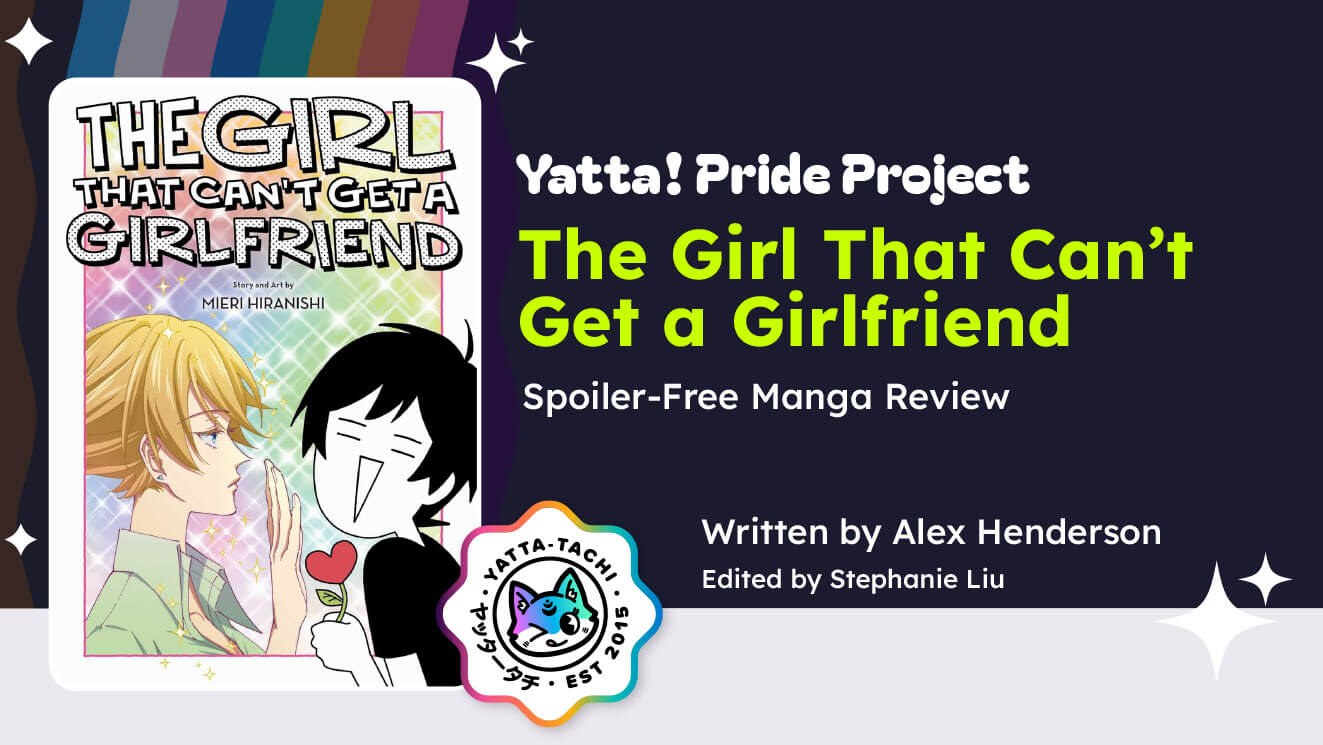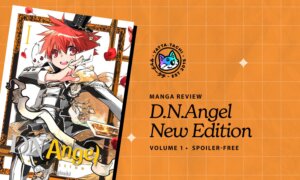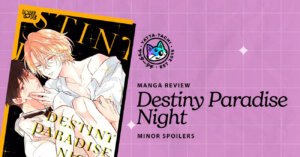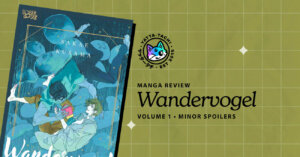Synopsis
Hiranishi Mieri realized she liked girls in middle school when she saw a certain handsome, butch Sailor Guardian for the first time. From her obsession with beautiful, princely anime women to her first proper relationship and break-up, this autobiographical manga follows Mieri through the trials and tribulations of searching for love and the happiness that’s supposed to come with it.
Note: The author and the protagonist of this memoir are the same person, but to make the distinction, I’ll use “Hiranishi” when discussing authorial decisions, and “Mieri” when talking about in-story actions.
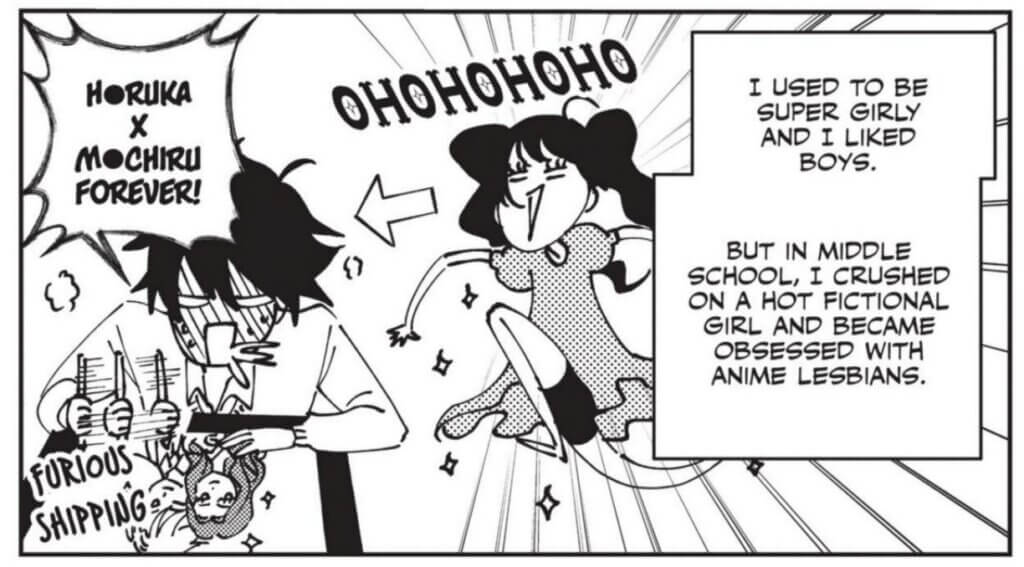
The Good
The Girl That Can’t Get a Girlfriend sits in a growing subgenre of queer autobiographical manga, alongside modern classics like My Lesbian Experience With Loneliness to more recent hits like Until I Love Myself: The Journey of a Nonbinary Manga Artist. This one-shot, which began its life as comics posted to Hiranishi’s social media, tells the tale of her own heartache through a lens of self-reflective, self-deprecating humor. This is baked into the visuals themselves, with Mieri always drawn as a sketched-out little gremlin while the women she has crushes on appear as more detailed, romanticized figures straight out of a shoujo manga. This even extends to the cover of the physical release, where Hiranishi’s author avatar appears in black-and-white whereas her love interest is printed in color—and poor Mieri is matte while the rest of the cover is glossy. You can feel the difference and feel Mieri’s sense of inadequacy.
As much as this is a story about relationships, crushes, and break-ups, at its heart, The Girl That Can’t Get a Girlfriend is about Mieri’s own struggle with self-love. Her escapades are very funny, but these anecdotes from her chaotic dating life ultimately come together into a story about her learning to like herself, and realizing that chasing after an idealized person or the nebulous idea of Having a Girlfriend isn’t the be all and end all of finding happiness.
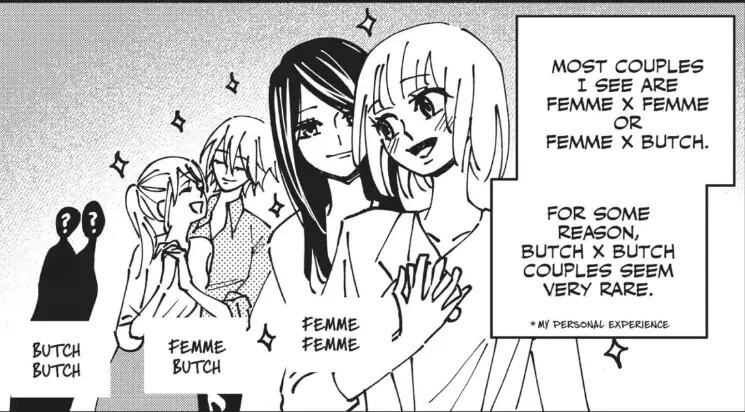
While the overall arc of this volume will be relatable to anyone who’s ever been lost in love, there are some elements that speak specifically to the queer experience. For example, Mieri talks about feeling alienated even in the lesbian community because she’s a butch woman attracted to other butch women—something that marks her as an oddity when femmes are considered much more acceptable and desirable. Even in the evolving landscape of LGBTQIA+ manga, butch representation is remarkably low, and relationships between masculine-presenting queer women more so (a gap that projects like the Boyish² anthology are trying to fill with the power of crowdfunding). While this is the story of someone’s real life and I’d hesitate to talk about Mieri as “queer representation” as if she were a fictional character, this is a social issue I hadn’t seen depicted in manga before and I appreciated seeing it laid out so candidly among other comedic observations.
The Maybe-Not-So-Good
Speaking of which, if this were a fictional story, I would have some critiques. Maybe that the love interests are thinly written and idealized, or that the protagonist changing the direction of her life to try to win back a girl is over-the-top and a tired, melodramatic trope. But this is an autobiographical comic, an account of a time in a real person’s life, so we need to address it from a different angle. Of course, the love interests are highly idealized, because Hiranashi is showing them as she saw them through the rose-tinted, googly-eyed lens of her younger self. They’re concepts more than actual people. Likewise, I can hardly call Mieri’s decisions “bad writing” when it’s what the author did in real life—and when the story is arguably about her making mistakes and learning from them.
Life does not always fit itself into nice, narrative conventions, but Hiranashi has carved a fairly cohesive character arc out of real events. Recovery is not always linear in reality, so I wonder if some readers might find this editorializing a bit too neat. But I think there’s a value in that. As the author’s notes in the final pages freely admit, Hiranashi wrote these comics as a therapeutic exercise, so readers should take that into account and approach the story with that frame of mind.
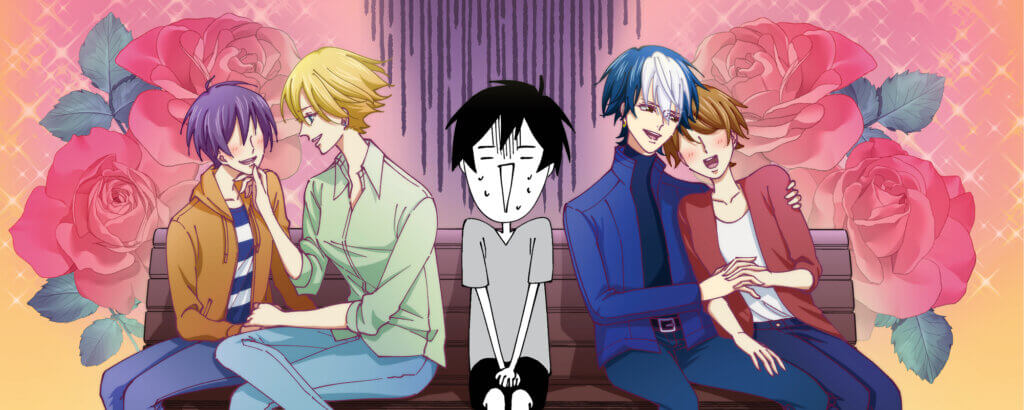
The Verdict
Whether you sympathize with Mieri’s messiness or roll your eyes at her antics will probably determine how much you vibe with the manga as a whole. For me, this was a very funny, sweet story of one person’s experience with dating and heartbreak, and the rocky ups and downs of her self-esteem. Hiranishi wrote this to process an emotional time in her life and to make sense of it through self-deprecating comedy. So who knows? Maybe we’ll get a sequel about where she is in her life now. But for now, The Girl That Can’t Get a Girlfriend is a great standalone manga that provides a funny, bittersweet insight into one person’s queer experience.
You can purchase The Girl That Can’t Get A Girlfriend on Bookshop, Barnes & Noble, and Amazon.
Credits
Story and art by Hiranishi Mieri
Lettering by Joanna Estep
Published by VIZ Originals, 2023
Article editor: Stephanie Liu

Featured Sponsor - JAST
The sweetest romance and the darkest corruption, the biggest titles and the indie darlings; for visual novels and eroge, there's nowhere better.
Big thank you to our supporters
From their continous support, we are able to pay our team for their time and hard work on the site.
We have a Thank-You page dedicated to those who help us continue the work that we’ve been doing.
See our thank you page